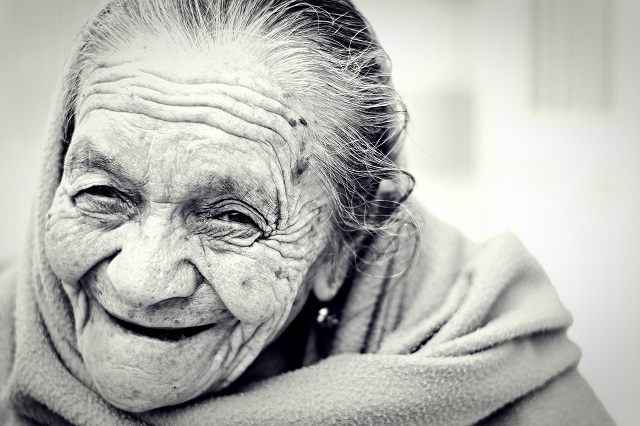I think about how I want to die.
Maybe we all do.
But I think about it much more now, even though I have years of life, work, relationships and adventures ahead of me. I think about it because I recently completed a nine-week practicum in a nursing home as a part of my Master’s program in social work.
I did not ask for this practicum. I wanted to work with kids, families, and maybe the homeless. Old people? People getting ready to die? How could that possibly benefit my career goals?
When I objected and asked for something else, my advisor just smiled. But he did not change his mind. So off to the nursing home I went, with the goal of just getting the next nine weeks over with and moving on. That nine weeks? The best I’ve ever spent in terms of learning about life.
Now I know that no matter what specific field of social work I enter, no matter how my life twists and turns, I have some major “grounding” from the lessons of the nursing home.
Here are 10 of them.
1. Nursing Homes are Microcosms of Society
I went into this internship expecting to find old people in pretty much the same mental and physical conditions. This was a huge prejudice that came to an end pretty quickly.
People do not leave their personalities, values and principles behind when they enter nursing homes. Some of them are sports enthusiasts; some are keenly interested in politics; some have had “charmed’ lives; others have had tragedies and struggles. They were doctors and lawyers, teachers and nurses, welders and plumbers, stay-at-home moms and factory workers. The wonderful thing about nursing homes, though, is that all of these people have opportunities to connect with types of people they never associated with during their adult lives.
And in that connection, people truly come to appreciate each other. Do they have disagreements and arguments? Of course. But to walk into the activity room one day and see David, a former university professor, teaching Warren, a former auto assembly line worker, how to play chess, and to see that friendship blossom, was a strong reminder to me. We tend to “hang out” with our “own kind” so much, we miss the enrichment that others offer.
2. Kindness Should be a Daily Activity
One of my first tasks after beginning my practicum was to assist a new resident unpack her belongings and get her room set up. Nursing home life certainly shrinks people’s worlds. They can bring very little. But key on this woman’s mind was a picture that her great grandson had recently made for her. She had to have that picture and was almost frantic about it. I was determined not to leave that room until that picture was found and tacked up onto the wall across from her bed so that she could see it every morning when she woke up and every evening before she fell asleep. You would have thought I had given her a million dollars when I located it.
We never know how a simple act of kindness can change an entire person’s day. That day, I was determined to find ways to be kind to others every single day of my life. Those acts can transform little corners of our big wide world.
3. Enjoy the Little Things
It’s funny how important little things become to nursing home residents. Happiness is built around getting to that bingo game or getting their hair washed and styled at the beauty salon. We tend to focus on the big events in our lives, and, yes, those are important. But we also tend to think that our happiness is built around the next big event rather than on the little daily things that brighten our worlds. We tend to consider the time spent between these big events as just “holding patterns” of wait time.
To nursing home residents, there are no holding patterns. They can appreciate birds at the feeder outside their windows or a small kindness from a staff member, and they have learned to savor these small things. We should do this at a much younger age.
4. Everyone is Truly Equal
Perhaps the greatest lesson of all is that all of the accumulations of shiny new things and all of the accolades and accomplishments in our personal lives are ultimately stripped from us and lose their importance. We are down to our bare humanness in the end, and what matters is that we are all equal in the treatment we receive and that we give to others. No one is denied rights and privileges based upon their birth or their lack of wealth. The nursing home environment is the great equalizer that we should strive for at all times and everywhere.
Chess players David and Warren were not the only examples of such equality among these residents. Marsha and Jane, from different backgrounds, shared their love for music; Sally and Charles, a seamstress and a doctor, never missed a Friday movie together.
5. Minimalism is a Good Thing
What do we really need? As a result of my experience in the nursing home, I came to see that my accumulation of “things” was really out of control. The shoes, the pants, the tops, the dresses, the coats. In my closet alone reflected a life of things, not experiences or joys or accomplishments. Memories of wonderful times, of relationships, of experiences are what is important.
I set about clearing my life of the clutter after this practicum, and can honestly state that I do not miss one thing I donated to good causes. Life is much simpler now—I will never go back to that old existence.
6. Live for the Moment
No one promises you the next day of your life. Nursing home residents know this. We should all know this.
Those residents who were bent on making the most of every day got up, got dressed, had breakfast, participated in activities, enjoyed social time with other residents, and lived in the “now” moments. Those who were angry, bitter, and who fought this new transition in their lives, lived in the past and were not so happy.
Part of my job was to help them through this transition, and a part of that was to “connect” with them myself, so that I could come to know them and give them little “now” moments of brightness. It was rewarding to know that, even at that age, and with ailments and fading brain power, they could come to enjoy the “now” moments.
We all need to practice living in the “now” more. If we develop the habit of doing so, we will not continue to ruminate about our pasts and worry about our futures.
7. Life Comes Down to Relationships and Experiences
If anyone spends time talking with nursing home residents, they come to realize that what becomes truly memorable in their lives are their relationships and their experiences. They do not talk about their homes, their cars, their jewelry, or their bank accounts.
They talk about their travels, the events in the lives of their loved ones, their milestones in relationships. These are the things that become important in later life, and these are the things that should be important now. Phillip had been an investment banker. But what were his walls filled with? Photographs of family holidays, graduations, and new babies that would carry on those family relationships.
Now, I make memories that involve family and friends much more regularly.
8. Everyone Deserves Dignity
As the elderly gradually lose the ability to take care of their physical needs on their own, they need to maintain their dignity, and it was the responsibility of all of us to see that they did. Gladys could no longer dress herself; she couldn’t comb her hair, apply her lipstick, or use the bathroom without assistance. Everyone in that place saw to it that Gladys was well “coiffed” every day.
Whether it is the homeless man on the street, the drug-addicted single mom who is trying to get clean, or the fast food worker at the drive up window, humans deserve to retain their dignity. They are doing the best that they can under the circumstances, as were these nursing home residents, and it is not our job to judge. It is our job to foster a sense of dignity in every human being.
9. Greet Each Day with Anticipation
One of the most endearing qualities of many of my nursing home residents was the way in which they greeted each day. It wasn’t as if they were going to be suddenly relieved of all physical pain; it wasn’t as if a magic wand would make them young again; it was that they could find something to look forward to. They could wheel themselves down to the nursing station and people watch and eavesdrop; they could look forward to a visit from a son or daughter; they could watch their favorite soap opera; they could get a new book from the library cart; they could anticipate the fact that their favorite meal was coming for lunch.
We all need to wake up anticipating good things for our days. Yes, they may be more monumental than those things which delight nursing home residents, but they are the things that get us out of bed and moving. Just waking up and knowing that a new day can bring new experiences is important for us all.
10. Think About Dying
Yes, we may consider this a morbid subject. For nursing home residents, however, this is a current reality. They know that they are at the end of the line, and they think about how they want to go. Most hope for a peaceful transition, without pain and regret. I now have a “living will,” something I never thought about before. I do not want all sorts of efforts and machines trying to prolong the inevitable. I want to go on my terms.
And for those of us who see leaving this world as just another part of a longer journey, planning how we want to die is not a frightening thing. Planning how to live until then is the far greater challenge.
My Advisor Had it Right
When my practicum at the nursing home was over, I visited my advisor again—this time to thank him for giving me the experience. I gained far more than those residents did from my presence. My priorities have changed; my approach to every day has changed.
He just smiled.
Author: Joline Wikander
Editor: Catherine Monkman
Image: Ismael Nieto/Unsplash







Read 1 comment and reply